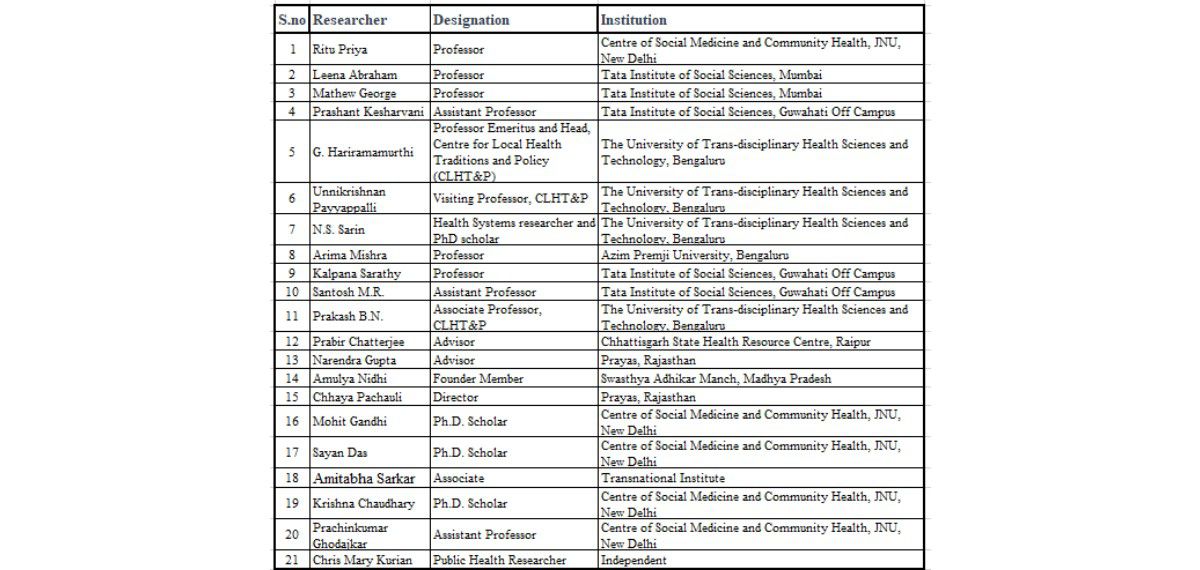
Holistic Health Systems Research Network
(HHSRN)
Who We Are...
Public health approaches that aim at improving the health of a population are implemented through various institutions and inter-sectoral interventions within and outside the government sector. Of the various institutions that render public health interventions / services, the government health service is one of the major and significant contributors directly improving the health of a population. The current field of health systems research evolved predominantly from the erstwhile health services research within public health. Its focus has been on health policy analysis (policy formulation, planning, implementation) and the evaluation of public health programmes. Unfortunately, reductionist views dominate the field both at the conceptual and methodological levels. It is through such research that knowledge necessary for public health interventions are developed and deliberated upon. Hence it is important to develop and strengthen holistic approaches in health systems research for building equitable, sustainable and context sensitive public health.
Health Systems Research (HSR) is an inter-disciplinary systems approach to generating knowledge about health care, interlinking inputs from varied fields such as public policy, economics, administration and management studies, sociology, anthropology, social psychology, science and technology studies, clinical medicine, epidemiology, and bio-statistics. However, the current overwhelming reliance on economics and management science to take bio-medical technologies and related practices to populations, ignores the cultural diversity, unequal social power structures, and the presence of pluralistic knowledge systems that characterize the Indian health care scenario.
The contemporary knowledge domains, including public health, have been influenced by the colonial history of over two hundred years. The contemporary neo-colonial trends continue to sustain elitism in education, in research and knowledge generation and also in its dissemination. Euro-American perspectives remain the dominant lenses for developing concepts and theories. Further, there is a predominance of the technological and commercial dimensions, ignoring the plural practices even within Euro-American societies. Plural knowledge systems about health, diverse ways of perceiving and dealing with health and health care issues are acknowledged, but more as problem areas rather than as contributors to developing robust health systems. Social determinants of health and political economy of health care are recognized but are not adequately incorporated in the concepts, research questions and design of studies. The relevance of environmental health, political ecology and sustainability studies have gained salience globally, but remain largely unaddressed by HSR. We think that these gaps have been major detractors from the possibilities of health care development globally, and especially in societies such as India. On the other hand, more comprehensive and holistic approaches that incorporate these dimensions have evolved as parallel streams but have remained marginal in the dominant health systems research.
Therefore, we have come together as a research network to undertake enquiries into these ignored dimensions and approaches. This includes exploring the theoretical, conceptual and methodological aspects of health systems research. We have used the term ‘Holistic Health Systems Research’ to underline our concern with the current reductionist approaches and the need to develop more egalitarian, democratic, sustainable and context relevant perspectives that guide public health research. In contemporary times the dominant knowledge establishment and its institutions exert enormous power to decide what, as a society, is to be considered valid and legitimate, and exclude other dimensions that are more relevant from the perspective of the marginalized in society, that give them agency to act in society., and in the health system. The marginalized includes those who are at the lowest socio-economic ladder—the dalits, adivasis, rural poor, informal sector workers, L.G.B.T.Q.I.A.+ people, women and also those who are at the receiving end of a power hierarchy within the health system—the patients, the paramedics and other institutional and community-level health care providers, the other non-dominant knowledge systems and their providers, the formally educated AYUSH practitioners and the Traditional Community Healthcare Providers who play a significant role in healthcare within households and communities. Thus our concern is about being more inclusive, pluralist and comprehensive in the field of health care.
We are researchers with diverse backgrounds, with education and experience in public health, medicine, Ayurveda, sociology, anthropology, psychology, environmental and occupational health, and trans-disciplinary and action research. We include at least three generations of researchers, equally balanced by gender, and do have some diversity of social and cultural backgrounds. We hope to grow beyond this initial group to researchers from other disciplinary, action and social backgrounds. We are located in various universities, public health related institutions and civil society organizations and are collaborating individually and voluntarily as the Holistic Health Systems Research Network. This includes researchers from Jawaharlal Nehru University (New Delhi), Tata Institute of Social Sciences (Mumbai and Guwahati), University of Trans-disciplinary Health Sciences and Technology (Bengaluru), Azim Premji University (Bengaluru), Chhattisgarh State Health Resource Centre (Raipur), Prayas (Udaipur) and Swasthya Adhikar Manch (Madhya Pradesh).
THE HHSRN TEAM
